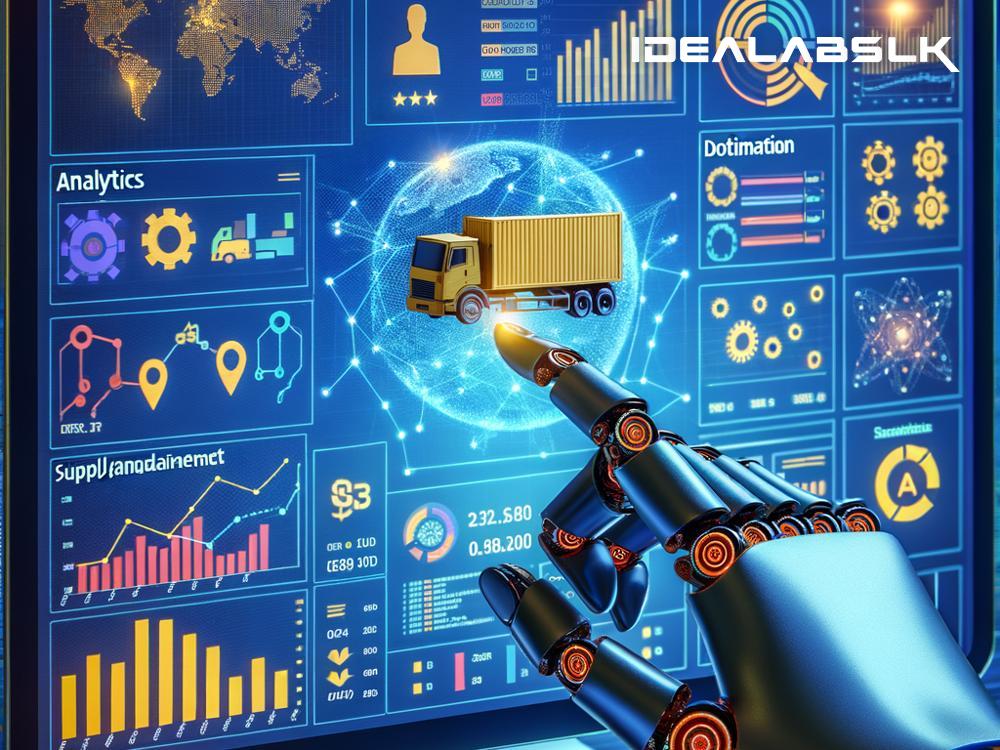How Machine Learning is Changing the Game in Supply Chain Management
In today's fast-paced world, businesses are always on the lookout for ways to stay ahead of the curve. One area that has seen a lot of advancements in recent years is supply chain management, thanks to the wonders of machine learning. If you've ever wondered how your favorite online store manages to deliver your orders so quickly or how supermarkets always seem to have fresh produce, machine learning might have a role in it. Let's break down how this technology is making supply chains smarter, faster, and more reliable, all in simple English.
What is Machine Learning?
First things first, let's understand what machine learning is. Imagine teaching a child to differentiate between apples and oranges by showing them examples. Over time, they learn to identify each fruit correctly. Machine learning works similarly, but instead of a child, we have computers. You feed them a lot of data (like pictures of apples and oranges), and through algorithms, they learn to recognize patterns and make decisions based on those patterns, without being explicitly programmed for each decision.
The Impact on Supply Chain Management
Supply chain management involves coordinating and managing a network of interconnected businesses in the process of producing and delivering products or services. It's like a complex dance between manufacturers, suppliers, distributors, retailers, and consumers. Now, add machine learning into the mix, and this dance gets a lot smoother and more efficient. Here’s how:
1. Forecasting Demand More Accurately
Predicting how much of a product will be needed in the future has always been a bit of a guessing game. Machine learning is changing that by analyzing vast amounts of data on past sales, weather conditions, market trends, and even social media, to predict demand more accurately. This means businesses can better plan their production and inventory levels, reducing both shortages and the cost of holding unsold stock.
2. Improving Inventory Management
Machine learning algorithms can analyze patterns and predict when stocks of a particular item will run low, automating reordering processes at the ideal time. This not only ensures that there's always enough stock to meet demand but also significantly reduces the risk of overstocking, which can be costly.
3. Enhancing Supplier Selection and Management
Choosing the right suppliers is crucial for maintaining the quality of products and ensuring timely delivery. Machine learning helps businesses analyze supplier performance, reliability, and compliance with standards over time, making it easier to select the best suppliers and manage relationships with them more effectively.
4. Streamlining Logistics and Delivery
Machine learning can optimize routes for delivery trucks, predict the best times for shipping, and even identify potential delays before they happen. This leads to faster delivery times, reduced fuel consumption, and happier customers.
5. Automating Customer Service
Ever noticed how online retailers seem to know exactly what you need help with? That's machine learning at work. By analyzing data from customer interactions, machine learning can help automate responses to common queries and even predict and solve problems before the customer is aware of them.
Making Supply Chains Resilient
In an ever-changing world, flexibility and adaptability are key to a successful supply chain. Machine learning helps businesses react more swiftly to disruptions, like natural disasters or sudden spikes in demand, by quickly adjusting plans and redirecting resources as needed. This resilience is crucial for maintaining smooth operations and high levels of customer satisfaction.
The Future is Bright
As machine learning technology continues to evolve, we can only expect its impact on supply chain management to grow. With advancements in artificial intelligence and analytics, supply chains will become even smarter, more efficient, and more responsive to the needs of both businesses and consumers. This isn't just good news for companies looking to enhance their operations—it's also great for us as consumers, promising faster, more reliable access to the goods and services we rely on every day.
In conclusion, machine learning is no longer just a buzzword in the tech world—it's a game-changer in the real world, particularly in the realm of supply chain management. By making processes more efficient, reducing costs, and improving customer satisfaction, machine learning is optimizing the supply chain in ways we once only dreamed of. It's a classic example of technology and human ingenuity working hand in hand to solve complex problems and create a smoother, more connected world.

